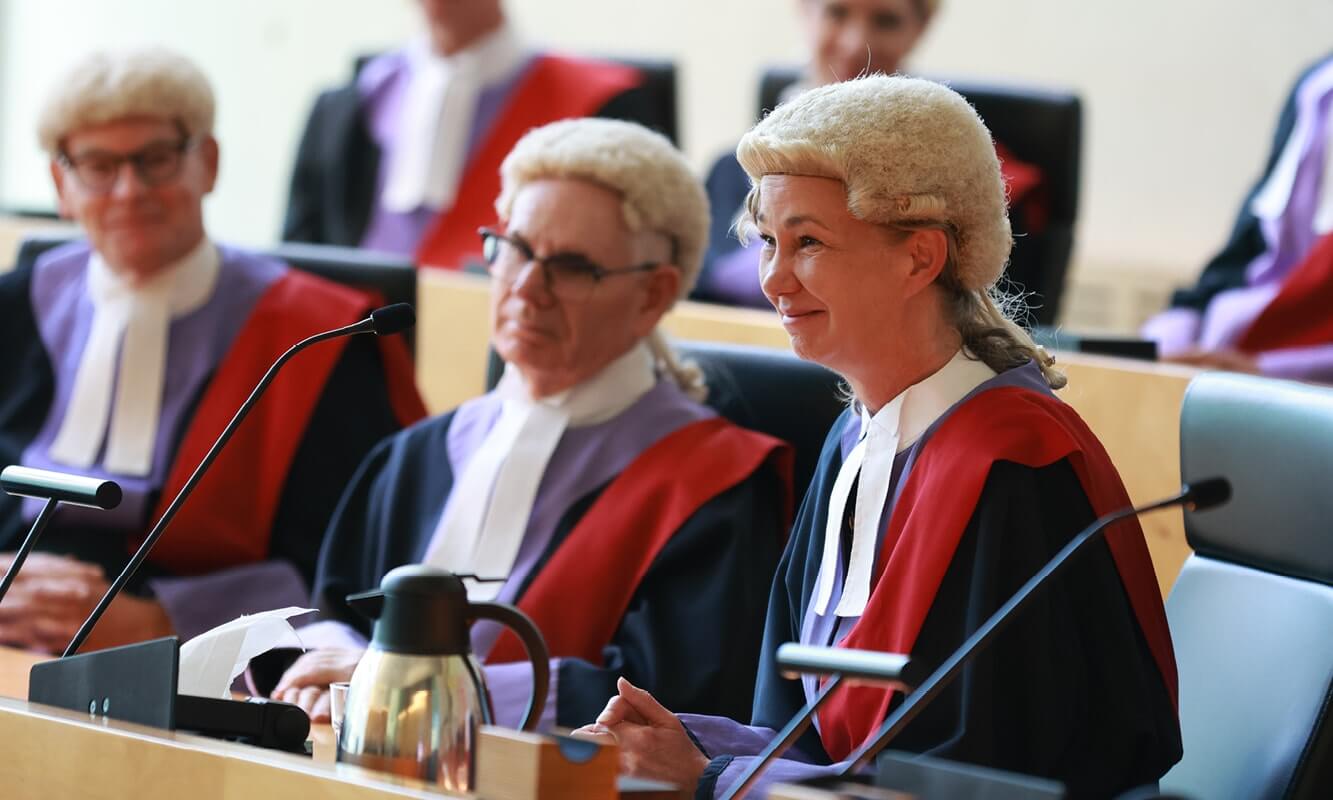In August last year, Queensland Attorney-General Shannon Fentiman made a formal referral to the Queensland Law Reform Commission (QLRC) to recommend a framework for a decriminalised sex work industry in Queensland.1
The referral follows recent moves by other Australian jurisdictions (notably Victoria, the Northern Territory and New South Wales) to decriminalise sex work and was the result of a long and hard-fought campaign by sex worker advocates, like DecrimQLD, who for years had argued Queensland’s prostitution laws criminalise simple safety measures for sex workers, encourage excessive policing and expose sex workers to extraordinarily high levels of discrimination.
The QLRC has released a consultation paper, ‘A framework for regulating the sex work industry in Queensland’ (consultation paper), to which Queensland Law Society has responded.
This series of articles details the Society’s response to the QLRC’s consultation paper and explores how a decriminalised framework for the sex work industry might operate in Queensland. This article sets out the Society’s recommendations in respect of criminal law responses to the sex work industry.
Protecting people from exploitation in commercial sexual activity
The Society considers that a legislative framework for sex work in Queensland should, as far as possible, aim to regulate sex work and sex work businesses under general laws applicable to all individuals and businesses, and should remove police as the primary regulators of the sex work industry.
Where a policy decision is made that a particular activity should be a criminal offence, consideration should be given to whether the activity is already an offence under general (that is, non-sex work specific) laws so as not to unnecessarily duplicate existing offences.
For example, s229FA of the Criminal Code Act 1899 (Qld) (Criminal Code) makes it an offence to obtain prostitution from a person who is not an adult.2 Similar conduct may already be an offence under other provisions of the Criminal Code, including s210 (Indecent treatment of children under 16), s215 (Carnal knowledge with or of children under 16) and s229B (Maintaining a sexual relationship with a child).
Further, if one of the purposes of a legislative framework for sex work in Queensland is to recognise sex work as work, consideration should be given to repealing s229G of the Criminal Code – which makes it an offence to procure engagement in prostitution– to ensure sex work businesses can advertise their services for sex workers in a way that promotes transparency.
It may be necessary, however, to reformulate s229G(2) in another part of the Criminal Code to retain the offence of procuring a person who is not an adult to engage in sex work (unless such conduct could be said to be captured in an existing offence).
QLS also echoes calls from the Queensland Public Advocate for a review of s216 of the Criminal Code as it relates to persons with ‘an impairment of the mind’:
“The creation of an offence that is presumed to have occurred on the basis that a person with ‘an impairment of the mind’ is incapable of engaging consensually in any sexual activity is inconsistent with the rights of persons with disability as outlined in international humanitarian conventions and other Queensland laws. … Section 216 also appears to be the most restrictive of this type of offence provision among Australian states and territories.”3
The QLRC’s consultation paper makes brief reference to s216 of the Criminal Code; however, the issue of the discriminatory nature of the section towards people with impaired decision-making capacity is not explored as a component of decriminalisation of the sex work industry.
Accordingly, the Society encourages the QLRC to consider what legal frameworks and principles exist in various jurisdictions, as well as issues such as the level of protection people with impaired decision-making capacity may require, in consultation with people who have knowledge and understanding of such situations.
Should public solicitation continue to be criminalised?
The Society has urged the QLRC to recommend that public solicitation also be decriminalised, on the basis that street-based sex workers make up a very small percentage of the sex worker population and advances in technologies make soliciting for clients off the street more accessible.
Decriminalisation of public solicitation is unlikely to increase the number of street-based sex workers. In New Zealand, decriminalisation of public solicitation has resulted in “no meaningful increase in the numbers working in the industry, in either street or indoor sectors”.4
Decriminalisation of public solicitation would improve sex worker safety, as well as relationships between sex workers and police. Street-based sex work in criminalised contexts “is often subject to more active policing because of its perceived ‘public nuisance’; this can mean relations between police and street workers are particularly fraught, further problematizing the reporting of violence”.5
While street-based sex workers may continue to be at higher risk of violence and threats of violence compared to sex workers in other locations, decriminalisation of street-based sex work would improve worker safety. This is because workers would be able to work in “more open locations, and spend more time screening potential clients” as well as report violence to police without risk of prosecution.6 Essentially, these workers would not need to choose between working safely and working legally.
Continued criminalisation of street-based sex work also risks the further marginalisation of certain sex workers, for example Aboriginal and Torres Strait Islander sex workers.7 Prior to decriminalisation of public solicitation in New Zealand, it was found that the “visibility of street work also increases the chance of arrest in contexts where soliciting is illegal, which is likely to contribute to the reasons for Maori and Pasifika women’s over-representation among those charged with soliciting”, because they were more likely to undertake street-based sex work than other sex workers.8
Research on the Viennese model, where street-based sex work has been confined to very limited areas, also shows that discussion of sex work regulation often revolves around street-based sex work and results in unintended consequences:
“The example of Viennese street-based prostitution demonstrates the negative effects that giving in to morality politics has on the policy process. Lacking any evidence, residents and politicians create the impression that the residents are endangered by outdoor sex work. Sex workers and prostitution are defined as a problem, not the policies towards prostitution. The police, who have traditionally been tasked with implementing prostitution law in Vienna, reinforce this perception. Police operating routines designate certain manifestations of prostitution as both ‘problematic’ and ‘feasible for intervention’. The result is that street prostitution, although a small part in Vienna’s prostitution market, has become the focal point of policy implementation…
“Another lesson learned is that expelling street prostitution from residential areas will not pacify residents. It is the visibility of outdoor prostitution, itself largely an effect of excessive media attention, that disturbs and becomes a source of conflict.”9
Accordingly, the Society supports the decriminalisation of public solicitation in Queensland. We also recommend against sex work-specific loitering laws and ‘move on’ powers because, as the consultation paper points out, such laws have the potential to “be abused, impact on a person’s right to lawfully use a street and create opportunities for corruption in the form of ‘deals’ between sex workers and police”.10
The Society also emphasised the need for a provision similar to that in Victoria restricting the ability of local governments to enact local laws that are inconsistent with the purposes of decriminalisation.11 This approach would enhance street-based sex worker safety while ensuring sex workers remain subject to general laws, including the offence of ‘public nuisance’ which a person commits if they behave in a disorderly, offensive, threatening or violent way and their behaviour interferes, or is likely to interfere, with another person peacefully passing through or enjoying a public place.12
In making recommendations about public solicitation, loitering laws and ‘move on’ powers, consideration should also be given to sex workers’ human rights, including their right to freedom of movement13 and their right to work.14
Fraudulent promise to pay a sex worker for a sexual act
The QLRC’s consultation paper highlights increased reports in sex worker clients withdrawing or reversing their payments to sex workers, and it has been argued the criminal law does not deal effectively with situations where a client fails to pay or withdraws or reverses their payment.15 Accordingly, the consultation paper asks whether, in a decriminalised sex work industry, Queensland’s criminal laws are adequate to deal with circumstances where there is a fraudulent promise by a person to pay money to a sex worker in exchange for a sexual act.
In the QLS submission, the Society acknowledged the practical effects that decriminalisation will have on sex workers’ rights in such circumstances. For example, it will likely remove barriers to sex workers reporting crimes committed against them; enable them to improve screening of, and negotiation with, potential clients; enable them to adopt safer work strategies and transparent business practices; and, access other protections.
For example, a sex worker would be able to employ someone to assist with protection and recovery of money. The QLRC highlights decriminalisation may also “lead to changes in individual, social and cultural attitudes about sex work and sex workers with positive effects on sex workers’ rights and safety”.16
Consistent with the notion of decriminalisation and treating sex work as legitimate work, the Society submitted that refusal to pay a sex worker for a mutually agreed upon sexual act would more appropriately be categorised as fraud in circumstances where there is serious dishonesty and misrepresentation by the client. In other less serious circumstances, it may be that such situations can be dealt with under general civil laws relating to the recovery of a debt.
In its submission to the QLRC, the Society highlighted that the offence of rape (which carries a maximum penalty of life imprisonment) should not be aligned with circumstances relating to the recovery of money. This could result in the unintended consequence of creating separate categories of rape and would introduce a new category that traditionally would not be understood by most members of the community as rape.
In light of this, the Society emphasised that recommendations be made to the Commissioner of Police to ensure the QPS Operational Procedures Manual concerning prosecution of fraud offence sincludes some specific directions about this type of conduct.
The QLRC is due to provide its final report, including any draft legislation required to give effect to its recommendations, to the Attorney-General by 27 November 2022.
Dr Brooke Thompson is a Queensland Law Society Policy Solicitor.
Footnotes
1 Queensland Law Reform Commission, ‘Terms of Reference: Queensland’s laws relating to the regulatory framework for the sex work industry’ (27 August 2021).
2 Criminal Code 1899 (Qld) s229FA.
3 Public Advocate, ‘A discussion of section 216 of the Queensland Criminal Code: A call to review the criminalisation of sexual relationships involving people with “an impairment of the mind” (discussion paper, January 2022) 7.
4 Johanna Schmidt, ‘The Regulation of Sex Work in Aotearoa/New Zealand: An Overview’ (2017) 31(2) Women’s Studies Journal 35, 45.
5 Ibid 41.
6 Ibid 46.
7 Who, in a 2005 study on street-based sex workers in greater Sydney comprised one-quarter of the sex workers interviewed: Roxburgh et al, ‘Mental health, drug use and risk among female street-based sex workers in greater Sydney’ (NDARC Technical Report No.237, 2005).
8 Schmidt (n4) 42.
9 Hendrik Wagenaar, Helga Amesberger and Sietske Altink, Designing Prostitution Policy: Intention and Reality in Regulating the Sex Trade (Policy Press, 2017) 134.
10 Queensland Law Reform Commission, ‘A framework for a decriminalised sex work industry in Queensland’ (Consultation Paper WP 80, April 2022) 169 [14.15].
11 Sex Work Decriminalisation Act 2022 (Vic.) s3(1).
12 Summary Offences act 2005 (Qld) s6.
13 Human Rights Act 2019 (Qld) s19.
14 International Covenant on Civil and Political Rights, opened for signature 16 December 1966, 999 UNTS 171 (entered into force 23 March 1976) art.6.
15 Queensland Law Reform Commission (n10) 198 [18.10].
16 Ibid 202 [18.36].
















Share this article